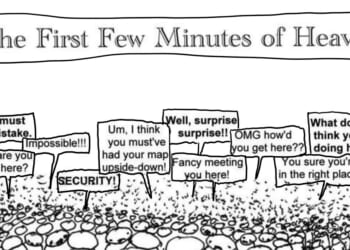THE Education Secretary, Bridget Phillipson, is on a mission to get children and young people reading. “Reading holds the key to so much of children’s education; so the decline in reading for pleasure among young people should sound alarm bells loud and clear,” she said during the summer, as she designated 2026 the “National Year of Reading”. She was clear that this “can’t just be a government mission. . . It needs to be a national one.” The National Literacy Trust, a partner in the campaign, says that “the number of children who say they enjoy reading, and read daily, [is] continuing to decline.” It goes so far as to say that there is “a reading crisis” among the young. Its latest Annual Literacy Survey, based on nearly 115,000 survey responses, found that only one third of eight- to 18-year-olds said that they enjoyed reading in their spare time: a decrease of 36 per cent during the past 20 years. Fewer than one in five of eight- to 18-year-olds surveyed said that they read daily. There is evidence that the reading crisis persists beyond childhood: reports suggest that English Literature undergraduates are struggling to concentrate long enough to read long novels, for example.
With this in mind, The Sunday Times is to be commended for its “Get Britain Reading” campaign, launched this month. A plank of the campaign is to raise money to support the expansion of the charity Bookbanks, which gives away books to clients of foodbanks. The newspaper ran a feature about the Bookbanks stall at the foodbank run in St Jude and St Paul, Mildmay, in north-east London (In the Parish, 10 January). The novelist Kit de Waal, who has experienced hunger, acknowledged that foodbanks were “literally life-saving. But keeping people alive isn’t good enough enough. We want people to thrive, and reading can be part of having a fuller, vibrant and rich inner life.” The Church is in the business of both feeding the hungry and helping people to find fullness of life (John 10.10); and so the mission to get people reading is one that it not only should get behind, but already does, through its provision of schools, and as parishes host after-school homework and reading clubs, and lay people volunteer to read with children who need help.
There is also a challenge for the Church. Increasing amounts of time and money are spent centrally on social-media output, aimed particularly at the young. A growing number of C of E services are very light on liturgy, in favour of the extempore. But, for many children in years gone by, following the printed text of the service in church was a way to grow not only in Christian formation through worship, but also in reading aptitude. Anglicans are true to their own tradition when they heed the Education Secretary’s call to “put our phones down and pick up a book”.

















